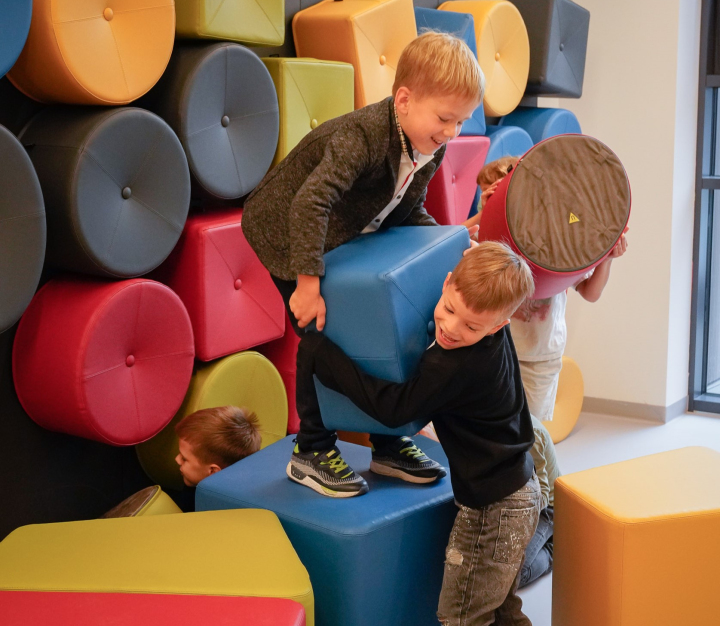Lower School (Kinder through Grade 5)
The Lower School program at AISV is specially designed to connect, inspire, and empower young children in PK2 through grade 5. We do this by meeting the academic, social, and emotional needs of our students. Our Lower School strives to provide developmentally responsive, challenging, empowering, and equitable learning experiences that promote student ownership and their well-being. We empower students by developing strong Approaches to Learning skills and promoting the IB Learn Profile traits. Our diverse environment is inclusive and provides support for a variety of learners.
Lower School Principal
Robin MacArthur
rmacarthur@aisv.lt
Lower School Assistant Principal
Catherine McNeely
cmcneely@aisv.lt
Academic
As we believe inquiry drives learning and encourages the child’s innate curiosity. We deliver our standards-based, teacher-designed curriculum through interdisciplinary inquiry and Project Based Learning units. These inquiry/PBL-based units encourage active participation through their use of imagination and creativity to inquire, explore, and reflect. Students collaborate with others to gain understanding, solve problems, and achieve high-quality outcomes. They consistently demonstrate initiative and motivation. We support students and encourage them to take risks. They are not afraid to ask questions or make mistakes. Each month we celebrate active learners at our Lower School Assembly.
The Lower School educational program aims to be holistic, challenging, and developmentally appropriate. The curriculum at AISV is designed to be accessible and relevant for all students who are admitted to the School. Through our standards-based, inquiry-driven curriculum, students are encouraged to analyze information, draw conclusions, and solve complex problems. AISV students are active learners who use imagination and collaboration, show independence, think critically, and critically evaluate information. These skills may include critical thinking, problem-solving, and other foundational skills necessary for academic and personal growth.

AISV Community Life
AISV Community Life is a developmentally appropriate program that takes place during a regularly scheduled period of time when teachers meet with groups of students to advise them on academic, social, or future planning issues. Our program follows a developed curriculum and consistent classroom routines, including:
- Daily Morning Meetings
- Teaching and reflection on Approaches to Learning Skills
- Community Life lessons (2 x per month)
- Assemblies
- Division-specific events and projects






